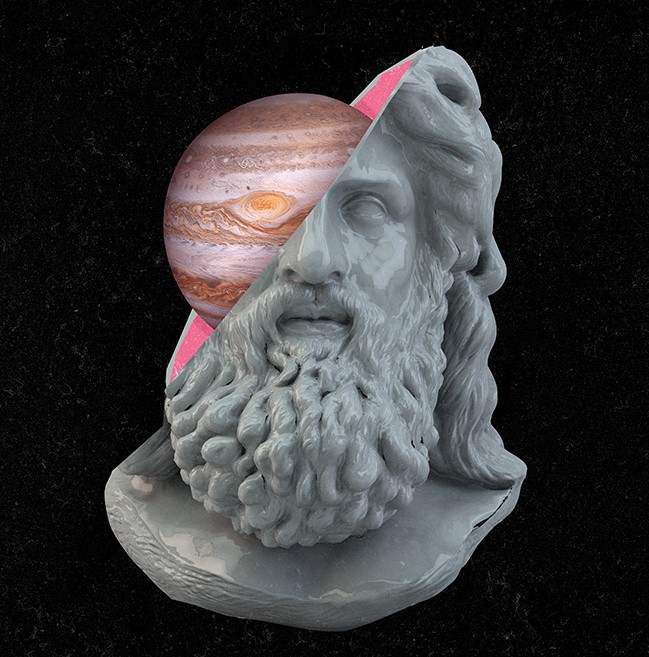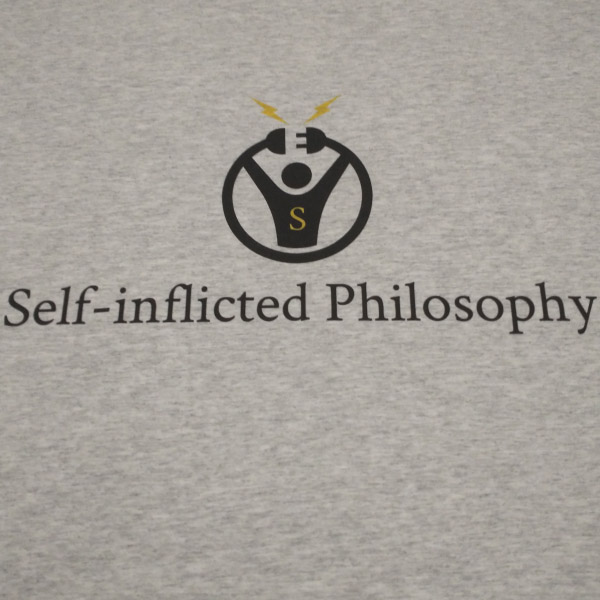www.self-inflictedphilosophy.com
by Gary Z. McGee
7 Ways to Become a Better Philosopher
“It is not death that a man should fear, but he should fear never beginning to live.” ~Marcus Aurelius
Death makes everyone a philosopher. Whether we become better philosophers or not depends upon how we live in response to death. Do we balk or do we gawk? Do we cry or do we laugh? Do we cringe or do we ‘rage, rage against the dying of the light’? Do we refine and discover Soul or do we remain unrefined and cling to the Ego?
As Epictetus advised, “Be either a philosopher or one of the vulgar.” Become a lover of wisdom or remain one of the ignorant. Be one who questions or one who gets hung up on answers. Become aware of your own cognitive dissonance or remain a victim to it. The choice is yours. And the heart of philosophy is choice. Here are seven ways to become a better philosopher.
1.) Be more curious:
“The only thing we require to be good philosophers is the faculty of wonder.” ~Jostein Gaarder
Get above black and white thinking and embrace wonder. Think in color. Manifest awe. Channel fascination. Become so utterly curious that no amount of petty certainty could ever hold you down.
When you become more curious, you go from small-picture believing to big-picture thinking. You transcend the ego and its attachment to pettiness. You detach in order to see how everything is attached.
Sometimes in order to open your mind you must lose it. Sometimes in order to cultivate mindfulness you must embrace No-mind. Sometimes the only way to discover that the “door to your jailcell is open” is to lose the mindset that conditioned you into thinking you were in jail.
Don’t let “knowing” be your jail cell. Don’t get stuck in certainty. Slap even the face of God if he tells you there is nothing more to learn. Stay curious. Stay thirsty. Stay hungry.
Without curiosity you are without wonder. Without wonder there’s no inquiry, no investigation, no questioning. And without inquiry you are stuck with cultural conditioning, indoctrination, propaganda, brainwashing, and the inability to navigate through the many minefields of misinformation imbedded by the vulgar.
2.) Be more humble:
“The right way to wholeness is made up of fateful detours and wrong turns.” ~Carl Jung
When you are humble, you can admit that you are fallible, imperfect, uncertain, and prone to mistakes. Humility gives you the courage to admit when you are wrong.
Without humility you are more likely to fall victim to your own cognitive dissonance. Without humility you are more likely to be blinded by faith and stuck in hand-me-down ideologies and outdated traditions. You are more likely to be clouded by pride. Without humility self-pity overpowers your ability to empower yourself. Ego reigns supreme and edges out Soul.
Humility brings you back down to earth. It unravels the roots, uncovers the bones, and strikes at the core of the human condition. It reveals the wizard behind the curtain was always you. It transforms your halo into a mortal coil. It gets you out of your own way.
You free yourself to unlearn what you have been deceived into learning. You free yourself to unwash the brainwash. You free yourself to dig up your humanness, your wholeness, your primal providence, which has been buried under multiple layers of cultural conditioning.
Use philosophy as a chisel for the hardened beliefs within you. Use it to humble yourself. Use it to destroy illusion and murder delusion. Use it to unsettle your settled mind, to shock your chakras, and to reevaluate all your values. Use it to practice self-overcoming.
3.) Be more honest:
“There is nothing in the world more difficult than candor, and nothing easier than flattery.” ~Gogol
The core of honor is honesty. You cannot be honorable without honesty. You cannot be truthful without honesty. Without honesty, there is only delusion and deception. Where honesty puts character into perspective, honor unifies character. Both unifying and putting character into perspective is a philosopher’s modus operendi.
Sometimes, often, honesty hurts. It hurts existentially. It hurts the ego. It hurts people’s feelings. But, as Diogenes surmised, “Of what use is a philosopher who doesn’t hurt anybody’s feelings?” Especially one’s own.
When it comes down to it, pain is necessary for growth. The pain gained through honesty leads to philosophical flourishing. Pain is the whetstone. You are the blade. The whetstone rubs out delusion, illusion, and cognitive dissonance. It smooths out the road to truth.
Therefore, it is of utmost importance to keep honesty ahead of hubris. Make sure the Ego works for the Soul and not the other way around.
Becoming a better philosopher requires brutal self-honesty. It takes embracing brokenness as a crucial aspect of wholeness. It takes honoring your most dishonorable moments and giving up all hope for a better past.
4.) Be more skeptical:
“If you wish to become a philosopher, you must try, as far as you can, to get rid of beliefs which depend solely upon the place and time of your education, and upon what your parents and schoolmasters told you.” ~Bertrand Russell
You are a member of a fallible, imperfect, clumsy species going through the motions of living a short life on an old planet which is hurtling through an unfathomably ancient universe.
No religion, ideology, philosophy, or politics has the answer. It’s all questionable. It’s all precarious. It’s all procrastinating wrongness.
Being skeptical is a superpower because it helps you keep this in perspective. It helps you question it all. It teaches you how to “entertain a thought without accepting it.” It teaches you why asking difficult questions will always be more important than receiving simple answers.
It’s your responsibility alone to align your interpretations with reality. And since you can never be sure if you’re interpretations are aligned properly, it is also your responsibility to be vigilant, circumspect, skeptical, and open to new interpretations.
If, as Nietzsche suggested, “Faith is not wanting to know what is true,” then it stands to reason that the opposite of faith—skeptical inquiry—is the best way to know what is true. Skeptical inquiry utilized on a long enough timeline leads to the profound realization that there is only one deadly sin: giving up the Truth Quest for “the truth.”
As Arthur Schopenhauer said, “Change alone is eternal, perpetual, immortal.” ~
5.) Be more courageous:
“Courage is risking the known for the unknown, the familiar for the unfamiliar, the comfortable for the uncomfortable, arduous pilgrimage to some unknown destination. One never knows whether one will be able to make it or not. It is gambling, but only the gamblers know what life is.” ~Osho
Be audacious. Be dauntless. Be impudent. Be creative. In a world hung up on being comfortable and passive, be explosive. Trigger the easily triggered. Beleaguer the bystanders. Paint loud colors over black and white thinking. Live dangerously.
As Nietzsche surmised, “What I understand of “philosopher”: a terrible explosive in the presence of which everything is in danger.”
Everything should be in danger because everything is in danger. Nothing stays the same. Nothing is certain. Nothing is secure. A good philosopher simply has the courage to point this out.
Challenge the Powers That Be. Strategically disobey. Lovingly crush out. Tenderly recondition the cultural conditioning of others lest they collapse in upon their own cognitive dissonance. Dare to pull the blindfold from your brother’s eyes lest they force the blindfold upon you.
Adopt freedom as your failsafe. Transform boundaries into horizons. Stretch all comfort zones. Life is too short to wait for “one day” to arrive. Make it “day one” and astonish the world.
6.) Be more flexible:
“Most of the important things in the world have been accomplished by people who have kept on trying when there seemed to be no hope at all.” ~Carnegie
Be resilient. Be durable. Be antifragile. Don’t settle. Don’t get stuck. Don’t cling. Stay loose. Stay flexible. Take a leap of courage out of faith.
Learn how to existentially pivot. Pivot lest you become stuck. Pivot to prevent being trapped in a stifling comfort zone. Pivot to thwart close-mindedness, hardheartedness, brittleness, and dogmatism. Pivot so that you may remain adaptable and antifragile despite obstacles and hardship.
As Bruce Lee said, “All fixed set patterns are incapable of adaptability or pliability. The truth is outside of all fixed patterns.”
Don’t become fixed in any set pattern. Keep imagination ahead of reason. Recondition cultural conditioning. Reimagine imagination. Revaluate all values. Reinvent God.
Most importantly, remain teachable. In a world that is dead set on what it has already learned, being teachable is a superpower.
7.) Be more humorous:
“We must accept finite disappointment, but never lose infinite hope.” ~Aristotle
Keep the will to humor (soul-centric) ahead of the will to power (egocentric). Don’t take yourself too seriously. Give yourself permission to play, to laugh, to mock. Cultivate the “skyhook” of Beginner’s Mind lest the “anchor” of Master’s Mind hold you back.
A humorous detachment from what you think you know is important because otherwise self-seriousness and pride will creep in and ruin your momentum. Nothing is better at keeping you ahead of the curve like a good sense of humor.
Learn how to laugh at yourself and the cosmic joke. You are the punchline after all. You are just as much a trickster as you are the trick. Subsume the dynamic. Spearhead the hijinks. Put the “chief” in mischief. Count coup on yourself.
Counting coup is a metaphor for dangerously and humorously shocking the self into wakefulness by questioning things to the nth degree. It’s a way of sneaking up on your ego, on your fears and certainties, and giving them a little smack with your coup stick.
When you’re counting coup on yourself, you’re counting coup on that which is unhealthy and fearful within you. You’re counting coup on that which is rigid and dogmatic in your worldview. When you count coup on fear, sloth, and extremism, you do it so that vitality, courageous action, and philosophical open-mindedness might emerge. You do it so that you can, like Thoreau said, “Live deliberately.”
Image source:
Eye of Jupiter by The Invisible Realm (Felipe Posada)
About the Author:
Gary Z McGee, a former Navy Intelligence Specialist turned philosopher, is the author of Birthday Suit of God and The Looking Glass Man. His works are inspired by the great philosophers of the ages and his wide-awake view of the modern world.
This article (7 Ways to Become a Better Philosopher) was originally created and published by Self-inflicted Philosophy and is printed here under a Creative Commons license with attribution to Gary Z McGee and self-inflictedphilosophy.com. It may be re-posted freely with proper attribution, author bio, and this statement of copyright.













